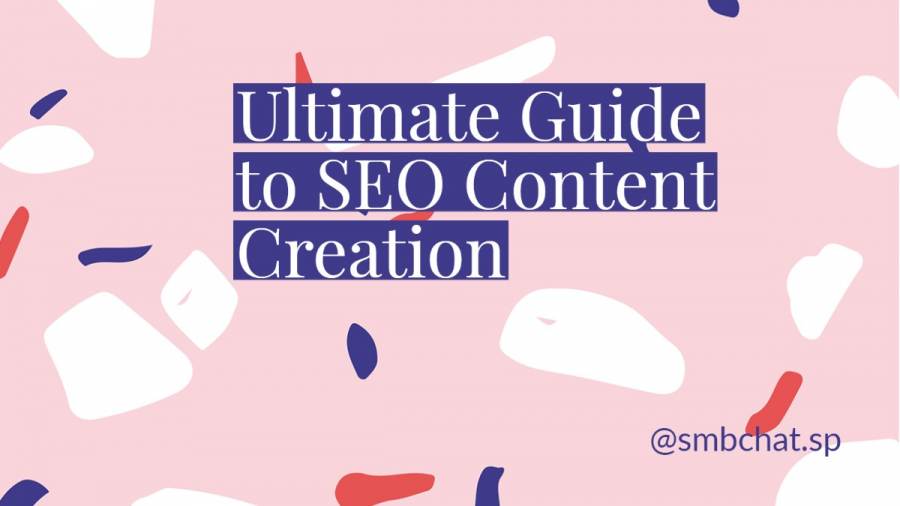Will Generative AI Change the SEO Game as We Know It?
“ChatGPT is every bit as important as the PC, as the internet.”
You’d be forgiven to think this comment was made by some unacquainted, half-baked intern somewhere while imbibing with friends.
But no.
It’s actually Bill Gates who uttered those bold words. Whether he’s correct or not is debatable.
What isn’t debatable, though, is that ChatGPT is the most advanced version of generative AI yet (lookin’ at you, GPT 4).
One particular area where ChatGPT and its ilk are already having a significant impact is in the realm of SEO. That isn’t really a surprise, though, given that generative AI brings a whole new elevated component to the mix: natural language processing (NLP).
So believe it or not, SEO as we know it is bound to undergo a significant change both in the short and long run. But before we delve into the impact of generative AI on SEO, a few words about this technology are merited.
Generative AI Explained
Generative AI can be compared to a master chef in a kitchen.
Just like the chef uses their knowledge and experience to create unique dishes, generative AI uses its algorithm and data to generate new and original content. Just as the chef can constantly learn and adapt new and innovative dishes, generative AI can constantly learn and adapt to generate new and innovative content.
Full disclosure: the above passage was crafted by ChatGPT, the generative AI bot that’s brought the internet to a standstill, with just a little bit of editing.
We just gave it the prompt: “Explain Generative AI with a metaphor.”
Yes, that’s what generative AI is capable of doing: create content just with a prompt. And this does not just mean written content. We also mean images, subtitles, videos, and any other content format you can possibly think of.
Check out this image we created by giving Dall-E, another generative AI, a random prompt:
Super cool, right?
Now, these capabilities are nothing short of miraculous. Which is why everyone is going gaga over these generative AIs.
Pro Tip: Become a pro AI prompter with these guides!
Get Creative with AI: How to Write AI Prompts that Deliver Remarkable Content Results
How to Write MidJourney Prompts: A Guide for Beginners
How Generative AI is Reshaping SEO
Search engine optimization has never been a rigid, stuck-in-one-place phenomenon. It’s always evolving, always adapting as search engines change their algorithms every few odd years. But never has the change been impromptu or unexpected. That may cease to be the case.
The sudden rise of generative AIs has sent shockwaves across the SEO space, leaving even the big guns scratching their heads. Not too long ago, Google, the company that controls the SEO industry itself, sounded an alarm bell, reportedly declaring a “code red” over ChatGPT.
Just when we thought the drama couldn’t get any feistier, Google throws the kitchen sink at OpenAI. On Feb 6, 2023, the behemoth announced the roll out of a new generative AI technology called Bard to directly rival ChatGPT. Chances are excellent that Google could implement its new bot in search, replicating what Microsoft is already doing with Bing. Whether or not that move will pay off remains to be seen. But one thing is crystal clear at this point: search is poised for a major, possibly lasting change.
This then begs the question: how will all these happenings affect SEO? What will be the impact of generative AI on SEO?
1. Optimizing for Conversational Search Will Be Vital
100 billion terabytes. That’s the amount of data Netizens created in 2022 alone. With such a gigantic avalanche of information floating online, searching for something from page to page can get tedious, fast. Put differently, people don’t want to peruse through a sea of results, they want an answer.
It’s quite annoying to have to figure out the right keywords just so you can find that one piece of information you need. It’s like making your way through a new city without having a map or anyone to point you in the right direction. You can eventually find what you’re looking for – but it’s going to take a lot longer than necessary, and you’ll probably get lost along the way.
This is where conversational search comes in. Just like you might ask a local for directions or for recommendations on what to do, with conversational search you can ask a question in plain English (or any language) and get an answer – no keywords. You bet your bottom dollar your customers crave precisely that.
Now more than ever, optimizing for conversational search isn’t just crucial– it’s a no-brainer.
2. Quality and Accuracy Will Reign Supreme
A quick search on any topic on Google will unearth tens of millions of links. While that looks wonderful in all its bliss, only a few links are often useful and valuable. The rest are just meh. Well, that’s never going to be the case with chat-based search.
This type of search will serve us direct results. As such, there won’t be a lot of room for competition. Websites will be contending for a smaller but more lucrative piece of the pie. That only means one thing: quality and accuracy will be absolutely crucial.
3. Audience Generalization Will No Longer Cut It
Targeting and segmenting audiences on a whim might have worked for your content marketing strategy pre-ChatGPT. Not anymore. The new era of generative AI is a whole different ball game, requiring you to steer clear of casting a wider net and instead focus on personalization. In other words, search results will be highly customized to reflect users’ unique and sophisticated preferences.
Will today’s SEO “best practices” remain relevant? For the most part, yes. However, it’s difficult to say for sure which ones will pull the most weight on the page ranking front.
Generative AI’s Approach to SEO: How to Optimize Your Content for Chat Search
Less texty. More chatty. Less jargonistic. More conversational. To reiterate, these four phrases best describe where search is headed at the moment. And like we’d hinted earlier, it’s all because of NLP. Natural language processing of AI means that chatbots are able to kind of understand the context and meaning behind the searcher’s intent.
That’s to mean that if you want to rank in a chat search, you need to have your content optimized for NLP. Focus on intent. Period.
Here are a few proven ways you can ensure your knitter-sweater content never gets relegated to page 1,000 of Google in the name of lacking intent:
1. Write with NLP in Mind
NLP and keyword optimization are like oil and water, they never mix. So don’t even break a sweat trying to optimize your content for specific keywords because ultimately, none of that will matter. Instead, focus on high-quality informative content that accurately answers users’ questions.
2. Use Clear, Concise Language that’s Easy to Understand
Don’t overly complicate your sentence structures. That’s high up on the list of what NLP algorithms hate the most, right next to their name. By limiting your sentence length, you will also likely streamline your thoughts.
3. Conversational is the Name of the Game
Since generative AIs rely on NLP, it’s important to use conversational language in your copy by writing in a way that ChatGPT and her cousins can easily understand. Ditch the Thesaurus and keep your sentences short, punchy, and straightforward.
4. Formatting is Crucial, Too
We’ll repeat this one more time – NLP algorithms love, love, love content that’s well-laid-out and easy to scour. To that end, maintain heading best practices and other readability tips. These include:
- Use the correct heading hierarchy
- Use bullet points for listed items greater than
- Keep your sentences under 20 words
- Avoid presenting readers with an impenetrable block of text
5. Make Sure Your Content is Fresh and Up-to-Date
Stale content stinks. Keep in mind that the motivation of these NLP algorithms is to improve search results while weeding out spammy, outdated content.
6. Craft Engaging, From-the-Heart Content
You can never go wrong with providing searchers with the best content for their needs. By this, we mean engaging content that they will want to read. Just be sure to keep intent in mind before all else.
7. Stop Following and Start Leading
Algorithms have been invented. Words have been uttered. The marker has been laid down. When the dust finally settles, only one thing will truly matter for you, your content strategy, and your brand: where your website ranks in the chat-based search results.
Will you become a conversational search guru in a few short weeks? Probably not. But what you can do is acquaint yourself with the nitty-gritty of generative AI and SEO so your content can check all the vital boxes. The best time to take your SEO journey by the scruff on the neck is now, and while that sounds daunting and scary, we can help.
At Zoey Writers, we’re a team of seasoned copywriters who move with the times, upskill frequently, and have your best interests at heart. Let’s put our extensive experience and adeptness to work for you through human-centered content that your impresses AI algorithms, galvanizes your strategy, and ultimately pushes your brand to the very summit of the search mountain. What’s holding you back? Contact us today to see what content creation perfection looks like.
Also checkout:
- We Asked ChatGTP What the Future of SEO is: Here is a Snippet of the Answer
- AI Won't Replace You: Someone Using AI Will.
Photo by D koi on Unsplash. Thank you D Koi!

















